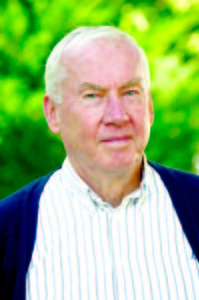Small World: U.S. decline — making the best of it
By Henry Precht
BN Columnist
“For the first time in nearly 40 years, most Americans believe their country’s influence is on the decline and that the United States wields less global power than it did a decade ago. A majority also believes for the first time that the United States should ‘mind its own business,’ while faulting President Barack Obama for his foreign policy, especially over Syria.†These are the findings of a just released Pew Research Center polling.
Two questions arise: Are they right, this majority of Americans? And, if so, so what?
First, if the United States is on the decline globally, what are we getting for the $682 billion we spend on defense, a sum equal to the military expenditures of the next ten nations combined? And what do we know of the world when we shell out maybe $80 billion each year to fund intelligence agencies?
Let’s take a historical approach. This country has been having its way globally for quite awhile. Think of Theodore Roosevelt and the territory we picked up during the Spanish-American War. Or you could go back to the Mexican War with an even more profitable (and easy) victory. During the first half of the last century, we pretty much got everything we wanted, especially in this hemisphere.
Then came Korea (stalemate) and Vietnam (defeat), followed by large bumps in our progress, e.g., Iran, Lebanon, and the disasters in Iraq and, it appears, Afghanistan, while Libya and Yemen are barely hanging on. Syria may be beyond our talents to manage and for four decades the Israelis have thumbed their official nose at our pleading for a peace deal with the Palestinians.
On the positive side, the Soviet Union collapsed, China emerged (until now) peacefully and Europe ended its centuries of strife.
On balance, I would say Pew’s majority is right — and wrong. We have declined, but mainly because rivals have come up to challenge us effectively. It has been a gradual process, however, not one of just the last decade. Worse, the relative drift downward — with a few good moments — is apt to continue. You might think about the Roman, Spanish and British empires, but don’t get too depressed.
The good news is that the Pew majority also thinks Washington should be concentrating its energy and resources domestically. As every Mainer knows, there is a large and expensive internal agenda awaiting our nation’s attention.
To address my remaining question, so what if our power is in decline? I would say that relative decline is the only realistic route for us to take. We aren’t going to be able to turn back the rising tide of China and other fast developing economies. We will be obliged to compete with them which means as a top priority we have to get our own house into shape — vastly improved education, stronger, up-to-date infrastructure (including health care) and responsive, reasonable, flexible governments in Washington and state capitals.
Even if, somehow, we got the national house in decent shape, there will still be problems and conflicts that arise that we will not be able to deal with. If we can’t seem to manage our own affairs, think how hard it is for poor, inexperienced governments overseas to control the behavior of their populations (supposing they want to). Or for us, with a generally inadequate understanding of foreign lands, to assist them in the task. Therefore, I think we can, without danger of being corrected, predict a continuing series of rebellions and more terrorism that will be hard — maybe impossible — for us to handle. Wisdom would support the Pew majority’s guidance: keep American hands off; turn in our badge as World Policeman. Wisdom, as the ancient Greeks knew, means knowing your limits — the opposite of hubris or overweening pride.
Learning patience and forbearance after so many years of (we thought) undisputed power will certainly represent the greatest foreign policy challenge we will have to confront in the years ahead. Diplomacy, not military might, and domestic development, not special interest waste, will be essential in slowing our downward drift
Henry Precht is a retired Foreign Service Officer.


